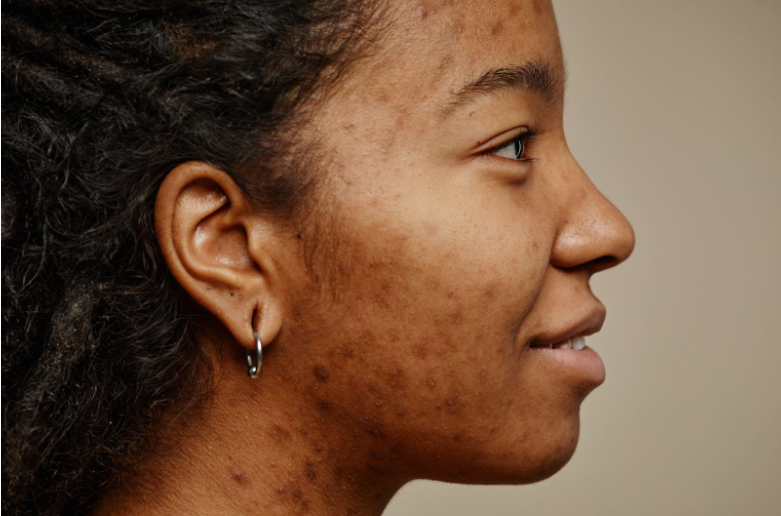Skin conditions encompass a variety of disorders that can affect individuals, leading to both physical discomfort and emotional distress. Understanding the nature, triggers, and treatment options of common skin conditions such as acne, eczema, and psoriasis is crucial for managing symptoms effectively. Each condition requires a different approach to treatment and management, emphasizing the importance of accurate diagnosis and personalized care. Educating oneself and seeking appropriate medical advice can significantly improve their quality of life. In this overview, Mark Siefring provides insights into the causes, symptoms, and management strategies for these prevalent skin conditions, aiming to empower those affected with knowledge and practical solutions.
Table of Contents
Overview of Skin Conditions
Skin conditions such as acne, eczema, and psoriasis are prevalent and affect millions worldwide. Each condition manifests differently, presenting unique challenges to those affected. The importance of understanding these conditions cannot be overstated, as awareness enables better management and reduces the stigma associated with dermatological issues. Acne, eczema, and psoriasis impact physical health and have psychological and social implications. Recognizing the symptoms and triggers of each condition is the first step toward effective treatment and improved quality of life. This knowledge empowers individuals to seek appropriate care and embrace strategies to alleviate symptoms.
Acne
Acne is one of the most common skin conditions. It is characterized by the appearance of pimples, blackheads, and whiteheads, primarily on the face, chest, and back. It mainly affects teenagers but can continue into adulthood. The condition arises from the overproduction of oil by the skin’s sebaceous glands, the blockage of hair follicles, and an accumulation of dead skin cells. Hormonal changes often trigger these processes, making acne a frequent issue during puberty.
Acne treatment varies depending on its severity. Mild cases often respond well to topical treatments containing benzoyl peroxide or salicylic acid, which help reduce oil production and combat bacterial growth. Healthcare providers might prescribe oral antibiotics or isotretinoin for more severe forms alongside recommendations for skincare routines. Adopting a routine, personalized skincare regimen is crucial in managing acne effectively, aiming to reduce outbreaks and prevent scarring.
Eczema
Eczema, also known as atopic dermatitis, manifests as patches of dry, itchy skin that can crack, bleed, or become infected if scratched. It typically appears on the face, behind the knees, and arms, though it can cover much of the body in severe cases. The itchiness can be intense, often worsening at night and impacting sleep. The exact causes of eczema are not fully understood but are believed to involve genetic and environmental factors, including irritants in soaps or detergents, allergens, and stress.
Managing eczema involves moisturizing regularly to combat dryness and using corticosteroid creams to control inflammation and itching. Many individuals also benefit from changes in diet and lifestyle, such as adopting a hypoallergenic routine or using non-irritating fabrics for clothing and bedding. Beyond medical treatment, support groups or counseling can be beneficial, as living with eczema can be frustrating and emotionally taxing, particularly during flare-ups.
Psoriasis
Psoriasis is a chronic autoimmune condition that speeds up the life cycle of skin cells, causing them to build up rapidly on the skin’s surface. These extra skin cells form scales and red patches that are often painful and itchy. Stress, cold weather, and infections are among the common triggers. Unlike eczema, psoriasis is known for its silvery-white scales, particularly on the elbows, knees, scalp, and lower back.
Treatment focuses on controlling symptoms and preventing infections. Options range from topical treatments, such as corticosteroids and vitamin D, to phototherapy and medications for more severe cases. Patients often find that a combination of treatments works best. Managing stress and maintaining a healthy lifestyle can also significantly alleviate symptoms.
Analysis and Diagnostic Insights
Understanding the differences and similarities among acne, eczema, and psoriasis is crucial for accurate diagnosis and effective treatment. While all three conditions involve inflammation, each has distinct triggers and symptoms that influence the approach to treatment. Diagnosis involves thoroughly examining the physical symptoms, patient medical history, and sometimes skin biopsies or allergy tests. Recognizing the unique characteristics of each condition aids in distinguishing one from another, ensuring that patients receive the most appropriate treatment.
Managing Skin Conditions and Improving Quality of Life
Living with a chronic skin condition can be a significant challenge, impacting not only one’s physical health but also emotional and social well-being. Effective management extends beyond medical treatments to include counseling and lifestyle adjustments. Providing patients with resources and support, such as education programs and community support groups, is vital in helping them cope with their conditions.
Incorporating strategies like stress management techniques, regular exercise, and a balanced diet can improve overall health and reduce the severity of symptoms. As individuals learn to manage their condition effectively, they often experience an improved quality of life, characterized by greater confidence and reduced social anxiety.












